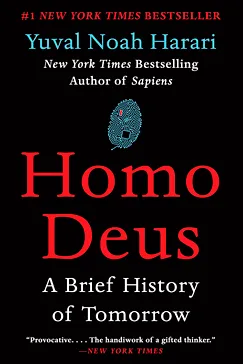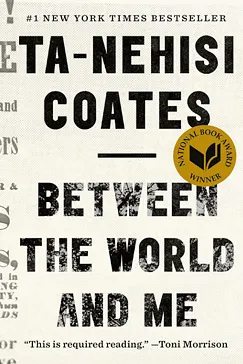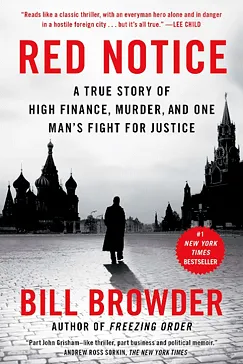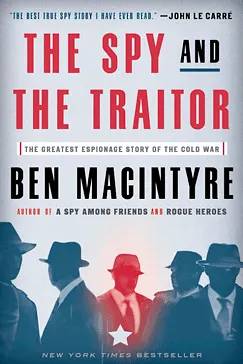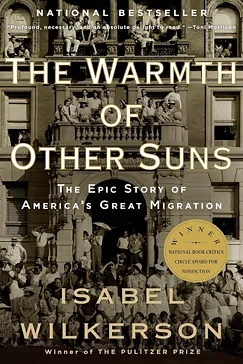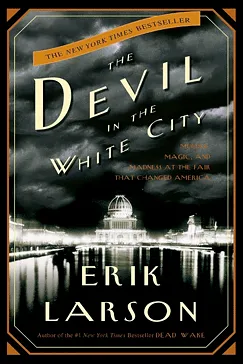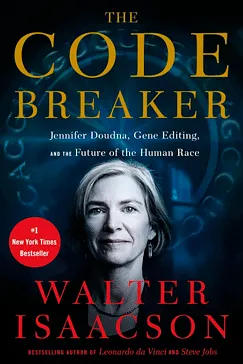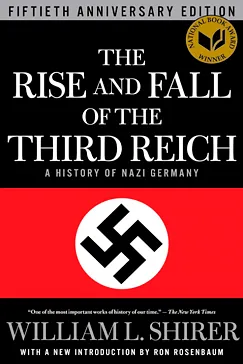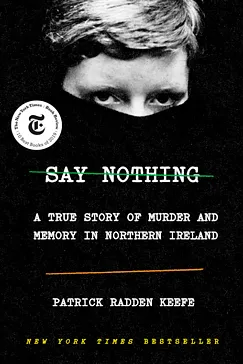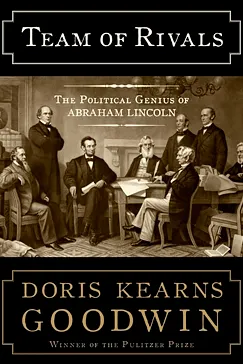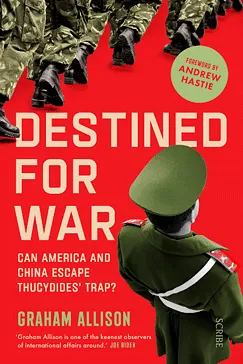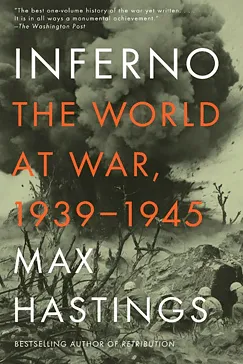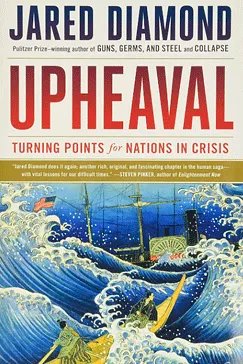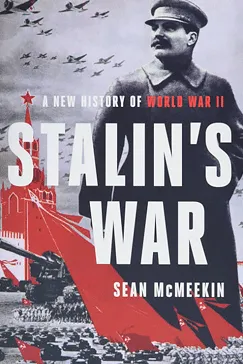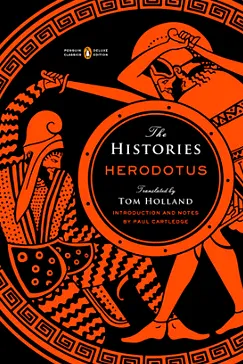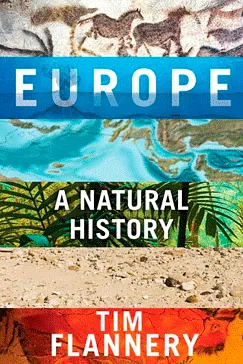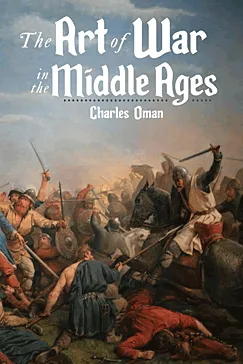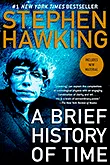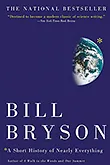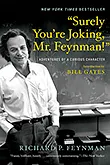Journey through time with our list of the best history books of all time that offer profound insights into our past.
Sapiens
The book describes the process of human development, beginning with the emergence of Homo sapiens in Africa to the formation of complex societies, and explains how biology and history made us. That's an interesting book that tries to explain the ways that human societies were created and developed and how myths and religion and revolutionary scientific discoveries shaped our modern world of today, with all its economies and political systems. A compulsive read, it sets one to thinking about our past, present, and future.Homo Deus
Future of human life is reflected through the history of the past and current technological progress in this thought-provoking expedition, imbued with a sense of uncertainty. He argues that famine and plague have more or less been conquered by humanity, and the worst battles for humanity are yet to come. But in the light of today's pursuit for happiness, immortality, and god-like powers, the book leaves one pondering how these can be entangled with the future roles of individual choice and free will. It reveals the scope of artificial intelligence and biotechnological impact on our lives, at the same time urging readers to consider and define ethically those reshaping potentials.Between the World and Me
Recommended by: DeRay Mckesson, Jay-ZWritten as a letter to his teenage son, this brief book—published by the same house that issued James Baldwin’s The Fire Next Time—details what Coates has learned growing up black in America. He has explored the realities of Black life in a structure of society where racial discrimination was an integral part, grappling with themes on identity, fear, and resilience. He posits questions at large in his musings as to what then is the very basis of the American dream and what it makes of the Negro body. This is a deeply meditative work on race, power, and the ways in which the world continually asks those with less to offer more.Red Notice
Recommended by: Michael BatnickThe book narrates the true story of how Bill Browder changed from being one of the largest foreign investors in Russia to an activist critic against Russian government corruption. Browder's life is turned upside down when his lawyer Sergei Magnitsky is killed in a Russian jail after exposing a massive tax fraud. Browder then sets on a mission to bring those accountable to justice—a kind of a global fight for justice. It is such a powerful story—one that connects finance, politics, and activism so naturally, illustrating how dangerous it is when the paths of money and power intersect in Russia. Browder never stops fighting ardently for the rights of the humans and for trying to account for it.The Spy and the Traitor
Recommended by: Bill GatesAn exciting true story unfolds from the narrative of Oleg Gordievsky, a KGB agent turned double-agent for Britain during the times of Cold War. He did secret work and took risks that helped avoid a nuclear confrontation and have a big impact on the course of history. The book encapsulates the element of espionage, betrayal, a cat-and-mouse game of intelligence between the superpowers. It speaks of Gordievsky's daring escape from Moscow, life undercover, and the high stakes in the world of espionage. Told with rich writing, this is an intimate story about courage and loyalty, offering insights into the life of a man who changed history.The Warmth of Other Suns
Recommended by: Nate Berkus, Katie CouricThe story follows the trail of Bill Browder, at some point the largest foreign investor in Russia and who turned into an outspoken critic of corruption in the Russian government. After his lawyer, Sergei Magnitsky, was killed in a Russian jail for having exposed a massive tax fraud, Browder's life changes 180 degrees. He has since set himself on a mission to reveal the people who did this, something that has since seen him launch a global crusade for justice. This is a thrilling narrative—bringing together finance, politics, and activism—and thus brilliantly displays the dangerous intersection of money with power in both Russia and on the global stage. It follows Browder's relentless pursuit for human rights and accountability.Guns, Germs, and Steel
It is a seminal book about inquiry into the way the modern world came to be shaped by environmental and geographic factors. The author suggests that the fates of societies were determined by the distribution of guns, germs, and steel among them. The book discusses why some civilizations had rapid development and dominance over others, due not to racial or genetic superiority but access to key resources that defined success. The book, in a sense, challenges the prevailing notion of European hegemony in great detail along the human history and tries to articulate a new understanding of development that covers the planet.The Devil in the White City
Against the backdrop of the Chicago World's Fair of 1893, this gripping historical narrative intertwines the stories of two men: the genius architect behind the fair, endeavoring to make sure America took its place in the world, and the cunning serial killer who would use the fair to tempt his victims to their ruin. One is speaking of millions in awe of the grandeur of the fair, the other moving in its shadows, compelling a dramatic narrative to tell a story of the highest heights versus the darkest lows. A story of ambition, innovation, and malevolence that reveals the dual nature of human endeavor, featuring both the grand heights to which human creativity can aspire and the dreadful depths of depravity into which it might plunge.The Lessons of History
The Lessons of History by Will and Ariel Durant is an epitome of distilled history into most basic and enlightening points. This book shows patterns and consequences of human behavior over time in politics, war, the economy, and society. Having existed for so long a period of human life, the authors put forth themes that will recur and do have an impact on our present and future. Their in-depth analysis sheds light on today's guidance from those lessons of history. This is a gripping read for anyone interested in understanding the forces that have given shape to human development and conflict.The Code Breaker
Recommended by: Bill GatesThe revolutionary work of Jennifer Doudna with CRISPR, a gene-editing technology, really brought up new pathways in life. The Nobel Prize laureate is viewed by many through a prism of tremendous adventure, from the basics of RNA to cutting-edge genetic engineering, depicting vivid drama in scientific discovery. It dives, therefore, much deeper into the ethical debates on genome editing, the race among scientists, and possible applications in the medical and agriculture sector. Instead of concentrating on the science, by focusing more on the human story behind it, the readers are taken into the window to the possibilities and challenges of the future—that is, manipulation of life at its very basic level.The Rise and Fall of the Third Reich
Recommended by: Jordan Peterson, Sam ParrThis detailed chronicle offers an exhaustive account of Nazi Germany, tracing its origins, rise, and eventual downfall. This provides the full understanding of the rise of Adolf Hitler and his totalitarian regime from first-hand information, access to historical documents and even the Nazi archives, and, lastly, the fall with the consequences of his policies that brought about World War II. It implies ideological bases such as the origin of the Third Reich, the nature of its ideologic fictions, the ways of brutal control, and the reasons for final defeat. It is a powerful study of one of the blackest pages in history, which again shows the danger of uncontrolled power.Say Nothing
An evocative, suspenseful, and dramatic tale set against the background of the Troubles in Northern Ireland," reads the tagline. "Entwining lives amidst decades of conflict. It unveils the complexities of human nature, the heavy toll of conflict, and the quest for peace. This book gives the deep insight into personal and political fights that formed a nation, and is therefore a must-read for anyone who wants to go into depth on human conflicts and resilience.Team of Rivals
Recommended by: Bill GatesThe story reflects on how one of America's greatest leaders, Abraham Lincoln, was shaped by his political competitions in the formation of his cabinet made up of rivals. It shows the unsurpassed skills of Lincoln, dealing with each complex personality and conflict within his team, converting them to become his allies for preservation of the Union and eradicating slavery. It is a book that focuses on Lincoln, his unique political genius, empathy, humanity, insights into ways he united a divided country with strength, understanding, and sharing of visions—a timeless study in leadership and political acumen.Destined for War
Taking its cue from historical examples of difficult relations between a rising power and an established one, the following reflections analyze the potential conflict situation between China and the United States. It introduces the idea of the Thucydides's Trap, where in the situation of a ruling power being challenged by a rising power the situation is almost always war. It discusses how, given detailed case studies and insights into international relations, this historical pattern could apply to the current tensions and suggests strategies to avoid catastrophic outcomes. The work is a call for careful, strategic thinking to prevent history from repeating itself in the 21st century.Inferno: The World at War, 1939-1945
Get embroiled into a detailed narration of World War II that covers the global reach as well as the personal war experience between 1939 and 1945. This account will balance between the strategies of the military, the political decisions that were taken, and the personal experiences of the soldiers as well as the civilians. It sheds light on the major battles and turning points, while also exploring lesser-known aspects of the war. With a word, Max Hastings has written the story about the causes and consequences of the war, the complication and atrocity of the war, the indomitable spirit of those living in the war through detailed research and first-person accounts, in such a way that can reach an adequate level of understanding for one of the most terrible wars in the history deeply.Upheaval
Recommended by: Bill GatesIn "Upheaval," Jared Diamond looks at how nations cope with crises and what determines their success or failure. Diamond points out common strategies by these nations, drawn from in-depth case studies of countries such as Japan, Chile, and Finland, to surmount monumental challenges. He makes an argument that it is possible to build resilience in the personal and national aspects and use this in the current global problems. This book discusses mechanisms of recovery and adaptation and is therefore a must read for every enthusiast interested in resilience of societies in the face of upheaval.Stalin's War
Recommended by: Balaji SrinivasanOffered here, then, is a revisionist frame on World War II—one that would center on the war's dynamics and its results for Joseph Stalin's influence. Grounded in painstaking source searching, this book is a direct challenge to traditional narratives laying bare both Stalin's imperial ambitions and his geo-political strategies. In doing so, it will hold great interest for historical readers across a number of disciplines, providing new light and insights within which to view the war that changed everything.The Histories
The first major work of history ever written travels back into the ancient world, bringing readers into the great conflicts between the Greek city-states and the Persian Empire, which found their reason for coming in the Greco-Persian Wars. It provides, besides describing the battles, a most lively description of the different cultures, customs, and geography of the 5th century B.C., from Egypt to Scythia. It showcases stories from the triumph of empires to daily lives of actual people from the past, highlighting the values, beliefs, and daily existence of those societies, and to me, it's a timeless piece of historical literature.Europe
Recommended by: Yuval Noah HarariEmbark on a journey through time to explore the natural history of Europe, from its ancient past to the present day. This book tells of the dynamic geological changes in the continent, the evolving of its flora and fauna, and the human influence on landscapes and ecosystems. Explored through engaging storytelling, this describes how the unique geography of Europe has helped to shape its biodiversity and the civilizations which developed. Highlighting the challenges and successes that have arisen from efforts at conservation, it is a powerful look at the interplay between nature and humans in shaping Europe's environmental legacy. A fascinating read for anyone interested in the past, present, and future of this diverse continent.The Art of War in the Middle Ages
Recommended by: Sam AltmanUnweaving the evolution of military tactics and technology from the late Roman Empire through the Renaissance, it proceeds to discuss how warfare shaped medieval Europe, the innovations of the time explaining the impact from the development of new weapons like the crossbow and longbow to tactics and society—all set against the dazzling portrayal of the changing art of war.
List of top rated History books everyone should read. Best sellers only!

